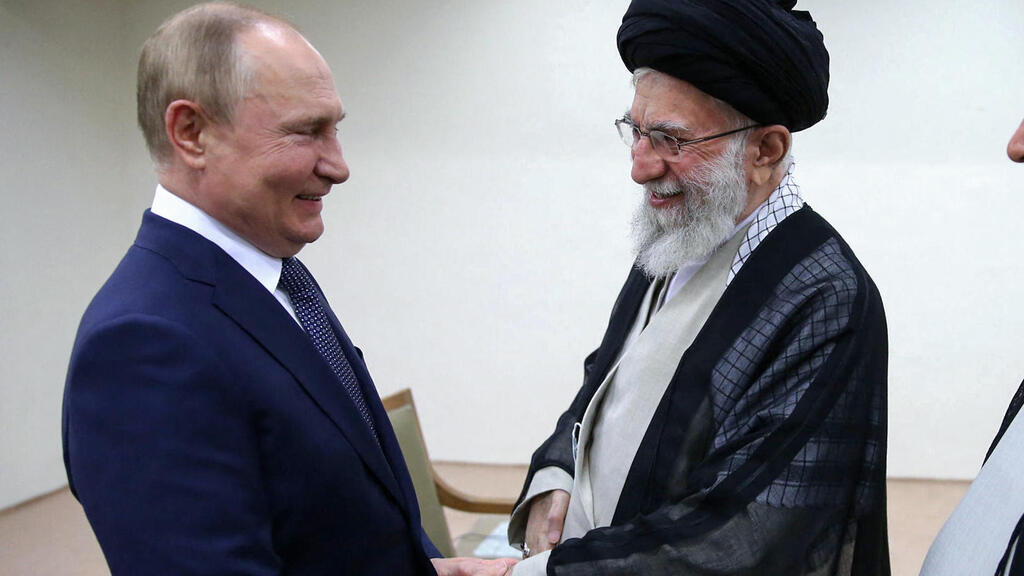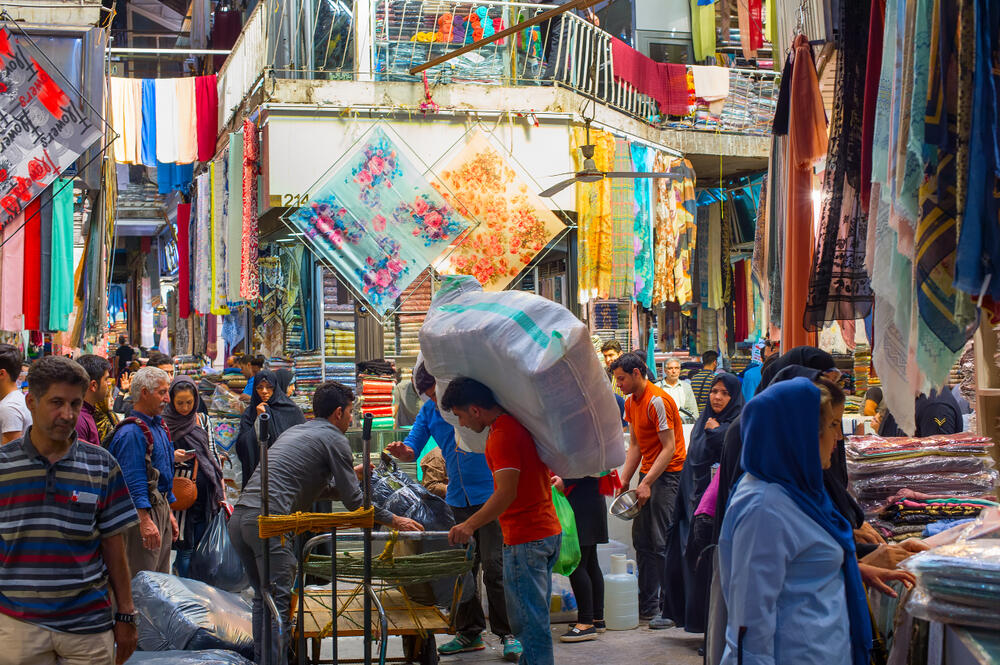This likely wasn’t the most common question at the Passover Seder, but I'll present it here, dear readers, as an exercise. Below are the real GDP growth rates (cumulative economic growth) for the years 2023 to 2025 in four key countries, according to the latest forecasts by the International Monetary Fund.
Country A's economy grew and is projected to grow by 11.5% over these three years, Country B's by 8.8%, Country C's by 7.3% and Country D's by only 1.2%. Two of these countries, Iran and Russia, are under regimes of severe and comprehensive economic sanctions. In the other two, the U.S. and Germany, democratic governments are implementing policies to actively encourage growth.
3 View gallery


Russian President Vladimir Putin and Iran Supreme Leader Ayatollah Ali Khamenei
(Photo: AFP)
The challenge: identify and rank countries according to their growth rates during the years 2023, 2024 and 2025. The solution reveals that Iran leads with 11.5% growth, followed by Russia in second place, the U.S. in third and Germany, once considered the powerhouse of the European economy, now lagging in last place due to stagnant growth in recent years.
Moreover, not only in growth do the nations penalized by "crippling" sanctions manage to overcome their consequences. Russia and Iran boast significant current account surpluses in their international balance of payments: Russia with a surplus amounting to 2.7% of GDP, and Iran with a surplus of 3.4% of GDP, averaging $18 billion annually. In contrast, the U.S. faces a persistent deficit in its international balance of payments, roughly 3% of its GDP.
Iran's budget deficit has stabilized at 3% of GDP, and the ratio of government debt to GDP is expected to drop to just 26% next year. Unemployment is projected to stabilize at 9% of the workforce, and inflation is set to moderate to an annual rate of 35%, according to the International Monetary Fund.
At a press meeting following the publication of these forecasts, senior IMF officials were questioned about the miraculous growth of Russia's economy and provided unsatisfactory responses, in my opinion.
Questions about Iran were almost entirely absent, despite the fact that, in my view, no economist would have accurately predicted Iran's economy growing at an annual rate of 4% in recent years, while its population has been increasing by 0.9% per year.
Statistical evidence clearly underscores the profound failure of sanctions. Despite thousands of Iranian officials, from regime leaders to field commanders, being blacklisted by the U.S. and the European Union, Iran's economy continues to function and progress. There is considerable doubt that the bombastic announcements of additional U.S. and European sanctions heard this week will change the situation.
Firstly, Iran maintains intricate and developed economic relationships with countries that do not see themselves bound by the sanctions regime, including Russia, China, India, Indonesia, Turkey and the United Arab Emirates.
Secondly, even the most comprehensive sanctions tend to unravel and weaken over time, as gaps within them widen. Meanwhile, the international community's political will to enforce them diminishes; the validity of a significant part of the sanctions on Iran naturally expired at the end of 2023 and was not renewed due to a lack of consensus in the UN Security Council.
The diminishing effectiveness of the sanctions has pushed decision-makers in Tehran to launch a military campaign against Israel and could lead them into a prolonged war against us—a war they perceive as an escape from a volatile domestic political situation and a means to maintain their regime.
The treatment of a terrorist organization is not the same as that of a major country. While Hamas could have been and still can be coerced economically to release our hostages, challenging and blocking Iran's Middle Eastern imperial aspirations with another round of sanctions is unlikely to be effective. This is at least what economists at the International Monetary Fund suggest or imply.




